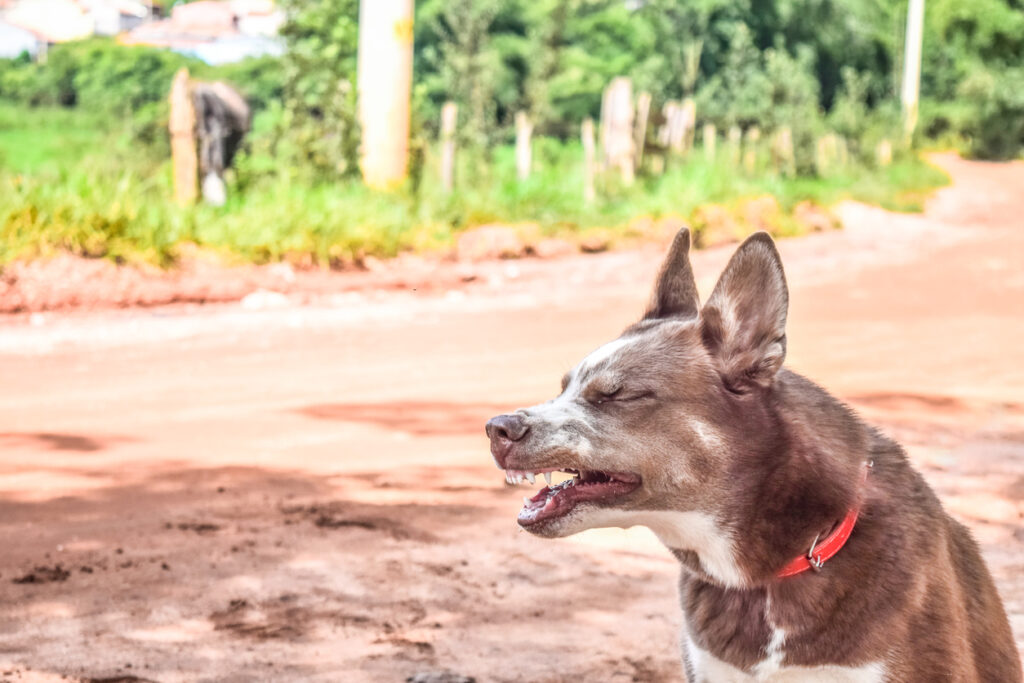The technical term is paroxysmal respiration, but many veterinarians simply refer to it as reverse dog sneezing. If you have noticed your dog snorting uncontrollably, they have likely been reverse sneezing. Reverse sneezing is when dogs inhale rapidly making a snorting sound that sounds like an inward sneeze. When you first notice your dog reverse sneezing it can be concerning if you have never heard them make this unusual sound before.
Being able to identify and distinguish reverse sneezing from other respiratory concerns can help make sure your dog gets medical treatment if it is needed. The good news is that reverse dog sneezing is harmless and most episodes only last a few minutes before your dog is breathing normally again.
Causes of Reverse Dog Sneezing
Although the sound of reverse dog sneezing can be alarming, the causes of reverse sneezing tend to be harmless. Reverse dog sneezing is typically caused by a blockage in the nose or throat or allergens. Some breeds of dogs are more prone to reverse sneezing than others. Breeds such as pugs and bulldogs struggle with reverse sneezing more frequently than other breeds. This is likely due to their smaller nasal passages and airways.
If allergies are causing more frequent episodes of reverse sneezing, take note of when and where the episodes tend to occur. Dogs, just like humans, can be sensitive to certain smells and fragrances. Candles and perfumes especially can cause dogs to have allergies so if you notice the episodes happening when your dog is around more fragrances that is likely one of the causes of their reverse sneezing episodes.
Another cause of reverse sneezing can be if the dog’s throat or airways are restricted. Reverse sneezing can sometimes happen when you are walking your dog on a leash. Dogs that are energetic tend to pull on their leash during walks causing their airways to constrict. If you notice it happening more on walks, it can be helpful to use a harness instead. Using a harness takes the pressure off of the throat and neck allowing the dog to breathe easier when walking.
Treatment for Reverse Sneezing
Technically there is not any medical treatment for reverse sneezing itself. However, your veterinarian may recommend different treatment options based on the cause of the reverse sneezing or if your dog is having additional symptoms as well.
If it seems as if allergies are the culprit of the reverse sneezing, your vet will likely prescribe an allergy medication such as an antihistamine to help control the allergies and limit the reverse sneezing.
It is possible your vet may recommend further testing to rule out any other causes for the rapid inhaling. A rhinoscopy is sometimes suggested as part of the treatment plan to assess your dog. When a rhinoscopy is performed your veterinarian will use a small camera with a scope to get imaging of the back of your dog’s nose and throat. These images can help your veterinarian see whether or not there are other medical issues going on with your dog or if there are any blockages causing the reverse sneezing.

Ways to Help Your Dog When They Are Reverse Sneezing
If your dog is having an extended episode of reverse sneezing there are a few things you can do to help. Sometimes all it takes is a few moments of helping them calm down to help relax their nasal passages. Simply petting their head and neck can help the muscles relax enough to allow them to breathe easier. Take a few minutes to stroke their neck and head allowing them to slow down their breathing.
Drinking water to help clear out the throat and nasal passages can also help a reverse sneezing attack to pass more quickly. Encourage your dog to take slow sips as you don’t want them to choke on the water while they are already breathing rapidly. Food during a reverse sneezing episode doesn’t do much to help and can often cause more harm than good. Wait until your dog is breathing normally again before offering them their food.
Another tip that is recommended sounds a little counterintuitive but it does work. Covering your dog’s nostrils while they are reverse sneezing can help clear out their nose and dislodge anything that may be stuck causing the reverse sneezing. While you don’t want to do this for long, trying it for a few seconds can sometimes do the trick in helping them breathe normally again.
When to See Your Veterinarian
When your dog reverse sneezes, it can be a bit alarming but they are likely fine. In fact, it is unusual for reverse sneezing to be cause for concern. No harm is done during a reverse sneezing episode and many dogs return to normal breathing in under two minutes of any attacks. However, there are rare instances when you should take your dog to a veterinarian due to reverse sneezing.
Reverse sneezing is sometimes confused with a tracheal collapse which tends to happen in extremely small dogs. A tracheal collapse is a much more serious condition that requires medical attention right away. If your dog is making more noise than simply inhaling in a reverse manner, take them to a vet immediately. Any time your dog seems to be struggling to breathe they should be seen by your veterinarian immediately to rule out more serious conditions.
Summary of Understanding Reverse Dog Sneezing
Reverse sneezing may cause you to worry about your dog’s breathing, but remember it is temporary and harmless. If your dog just started having more frequent reverse sneezing attacks it is important to have them seen by a vet to perform diagnostic tests to rule out any other medical conditions.
When trying to help your dog through a reverse sneezing episode, keep them calm by petting them and helping them relax their throat and neck muscles. While it is uncomfortable for a few minutes, most reverse sneezing episodes are over quickly and your dog will go back to being the happy companion you know and love.
Looking for a veterinarian to help with reverse dog sneezing near Tewksbury, MA? Contact Shawsheen Animal Hospital. Call us today at (978) 851-5558, or Request an Appointment online.





